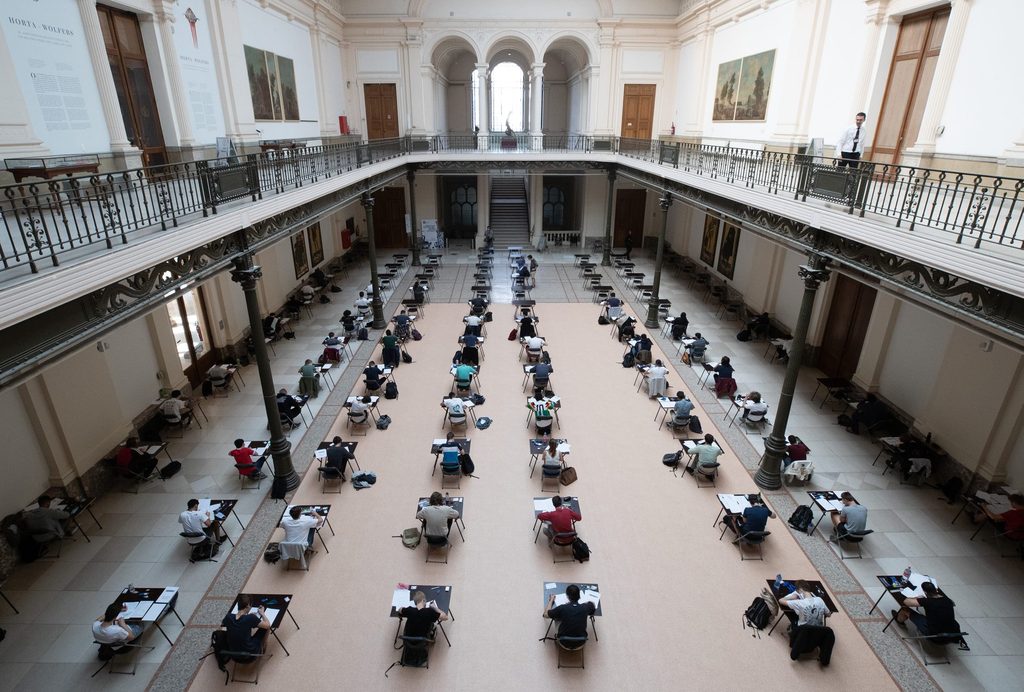The increase in registrations for English-language Bachelor's degrees at the Brussels' VUB University is "striking" this year, with up to 20% more students than in previous years for some programmes.
In total, 657 new students registered for the VUB's English-language Bachelor's programmes this school year, of which approximately two thirds are non-Belgian students.
"The VUB has always been an international university with approximately 25% international students due to its location in the capital of Europe," VUB chancellor Jan Danckaert said in a press release. "Our international appeal is enriching for the university community, both for Belgian and international students."
Both the Business Economics and Social Sciences programmes particularly saw a large increase, with registration going up by 20%. The Linguistics and Literary Studies degree also saw double the number of students sign up this year.
Combatting polarisation
The VUB is convinced that "bringing students together across borders helps to combat the polarisation we experience every day," Danckaert added. "In this way, they are confronted with the local colour of each other's points of view and are encouraged to work together respectfully, without prejudice or fanaticism."
The English-language Medicine and Biology degrees are also on the rise, with programmes managing to double their student numbers, the university said.
The news about the growing interest in English-language courses in Brussels comes not long after it became clear that Flanders is seemingly reluctant to accept the rise of English in higher education.
Related News
- Rue de la Loi, Wetstraat, Law Street? English may become Brussels' third official language
- 'Missing the boat': Flanders reluctant to bend to rise in English-language education
- Welcoming internationals: Schaerbeek offers its services in English
In Flanders, the educational language in schools is Dutch, but the legislation allows universities and colleges to offer English-language courses in higher education, provided there is an equivalent alternative which is 100% taught in Dutch.
The rising demand is partly explained by the growing number of international students discovering Brussels and Belgium. However, an increasing number of Flemish students are now also opting for English-language programmes to prepare themselves for an international workplace.
While education institutions have been asking the Flemish government for a more lenient language regime to ensure that Flanders does not "miss the boat" and that the brightest students do not move abroad for their studies, Flemish Education Minister Ben Weyts made it clear that this is "currently not on the cards."

